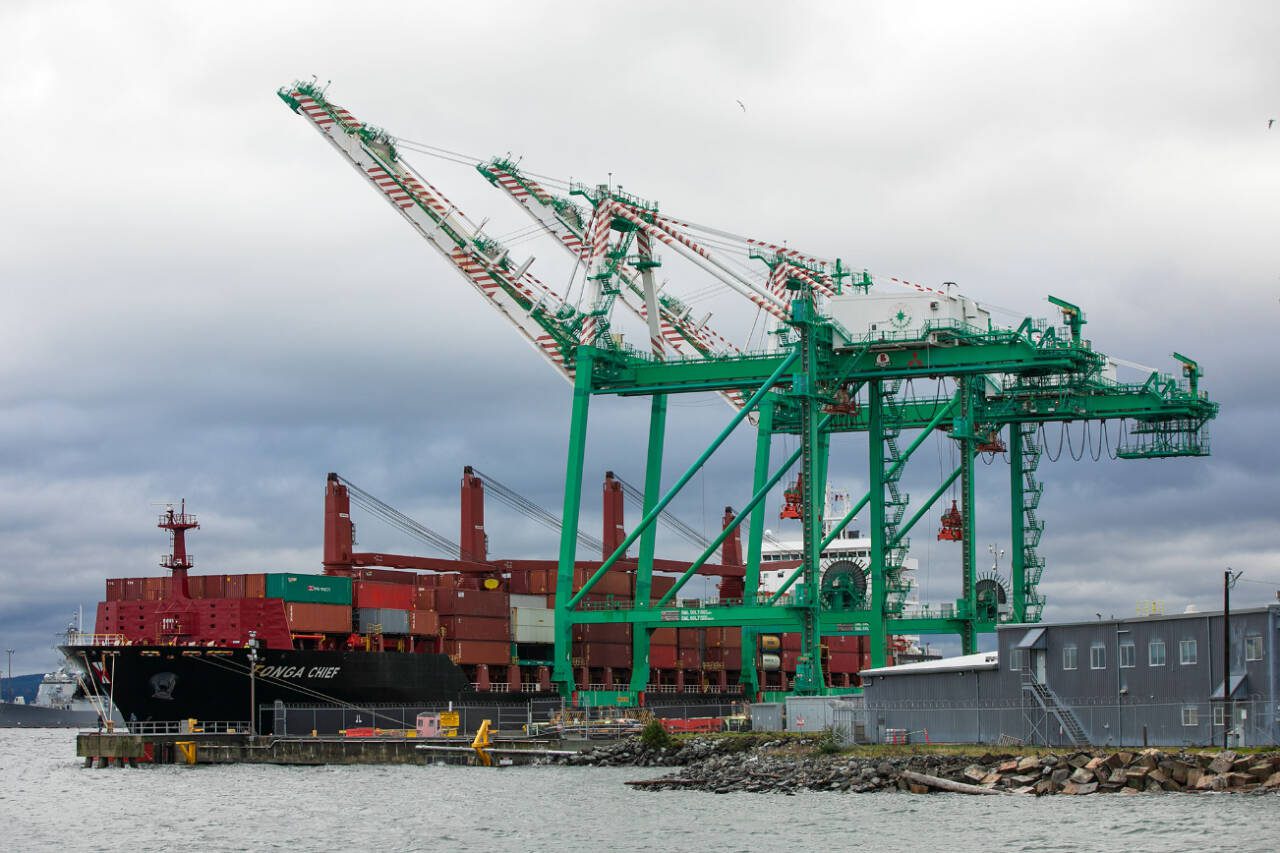By The Herald Editorial Board
The Port of Everett has won its battle over ballot language for an Aug. 6 election measure that seeks to vastly expand the boundaries of the port district. And if voters adopt the measure, the port’s board of commissioners may have also gained — as a Herald report about the legal case termed it — a gadfly.
The Port of Everett — which has operated within its current boundaries that include Everett and parts of Mukilteo and Marysville since 1918 — is seeking to expand those boundaries to basically encompass all of Snohomish County, with the exception of the boundaries of the Port of Edmonds, which include Edmonds and Woodway.
The port, which has responsibility as an economic driver for its residents, has sought the expanded district to make port resources and authority, such as local, state and federal funding available to more of the county’s communities for projects that could create local jobs and contribute to the county’s economy and quality of life.
The language of the ballot measure is straightforward and — as required by law — concise: “Shall the Port of Everett be enlarged to include all areas of Snohomish County not currently within the Port of Everett; the Port of Edmonds; the City of Edmonds; and any areas surrounded by the Port of Edmonds or the City of Edmonds, as described in the Port of Everett Resolution No. 1220 (2023)?”
But Morgan Davis, a county resident and property owner and longtime watchdog and critic of government decisions in the City of Snohomish, wanted two words added to the measure’s wording: “taxing district.”
Because the Port of Everett levies a property tax of 19 cents per $1,000 of assessed value for current district residents, Davis held that voters should be advised in the ballot language that the port district expansion will mean a new tax for those in the expanded port district; and he took that question to Snohomish County Superior Court last week.
Without those two words, Davis said in court last week, the measure becomes a “stealth tax,” one in which the port would be allowed to seek a property tax of up to 45 cents per $1,000 of assessed value.
Last Wednesday, Snohomish County Superior Court Judge Karen Moore ruled against including “taxing district” in the ballot measure, agreeing with the port’s attorney, Jack Follis, that the port’s taxing authority was only one aspect of what the expansion of the port district would bring to the district’s new communities, including funds for businesses development and job growth, environmental cleanup, transportation improvements and other capital projects; words that also were not included in the ballot measure.
Including “taxing district” in the measure without providing an explanation for how that revenue is used could unfairly prejudice voters against the district expansion.
Moore determined that, in fairness to the pros and cons each side can make for and against the expanded port district — and in the interests of keeping the ballot question to a reasonable word count — it was best to leave those arguments to the voter’s guide.
Nor is the voter’s pamphlet the only opportunity supporters and detractors of the measure will be able to use to explain to voters the numerous aspects of the port’s expansion. As with all manner of races for offices and ballot measures, voters can expect to see yard signs, advertisements, letters to the editor, commentary and word of mouth on the subject. Ballot measures are meant to pose the question to voters; it’s up to voters to gather the information they need to make that decision.
As to Davis’ warning that the port could seek an increase of its tax rate to 45 cents, that is the maximum allowed by state law. But the Port of Everett’s three elected commissioners, who set policy and the tax rate for the port, also are held accountable by the voters. It should be expected that port commissioners, as the port’s tax base is expanded along with the district boundaries, will consider an adjustment to the existing rate — higher, lower or unchanged — depending on what investments and projects are proposed and what district residents and its new taxpayers will support.
The tax rate won’t be the only decision the port’s elected leaders should consider if voters approve the district expansion. Chief among those should be yet another ballot measure put before voters to expand the port’s board of commissioners to at least five districts and five to seven board members, which would better represent the concerns and interests of the communities added to the port district.
Davis — not always to the liking of some City of Snohomish officials — has earned his gadfly title honestly over the years; he’s a frequent presence at that city’s meetings and makes liberal use of the council’s comment opportunities, making his case for fiscally responsible, fair and considered policy.
Should voters nearly county-wide approve the expanded port district, there will be ample reason to welcome Davis and others to volunteer the same service at board of commissioners meetings for the Port of Everett.
Talk to us
> Give us your news tips.
> Send us a letter to the editor.
> More Herald contact information.

























